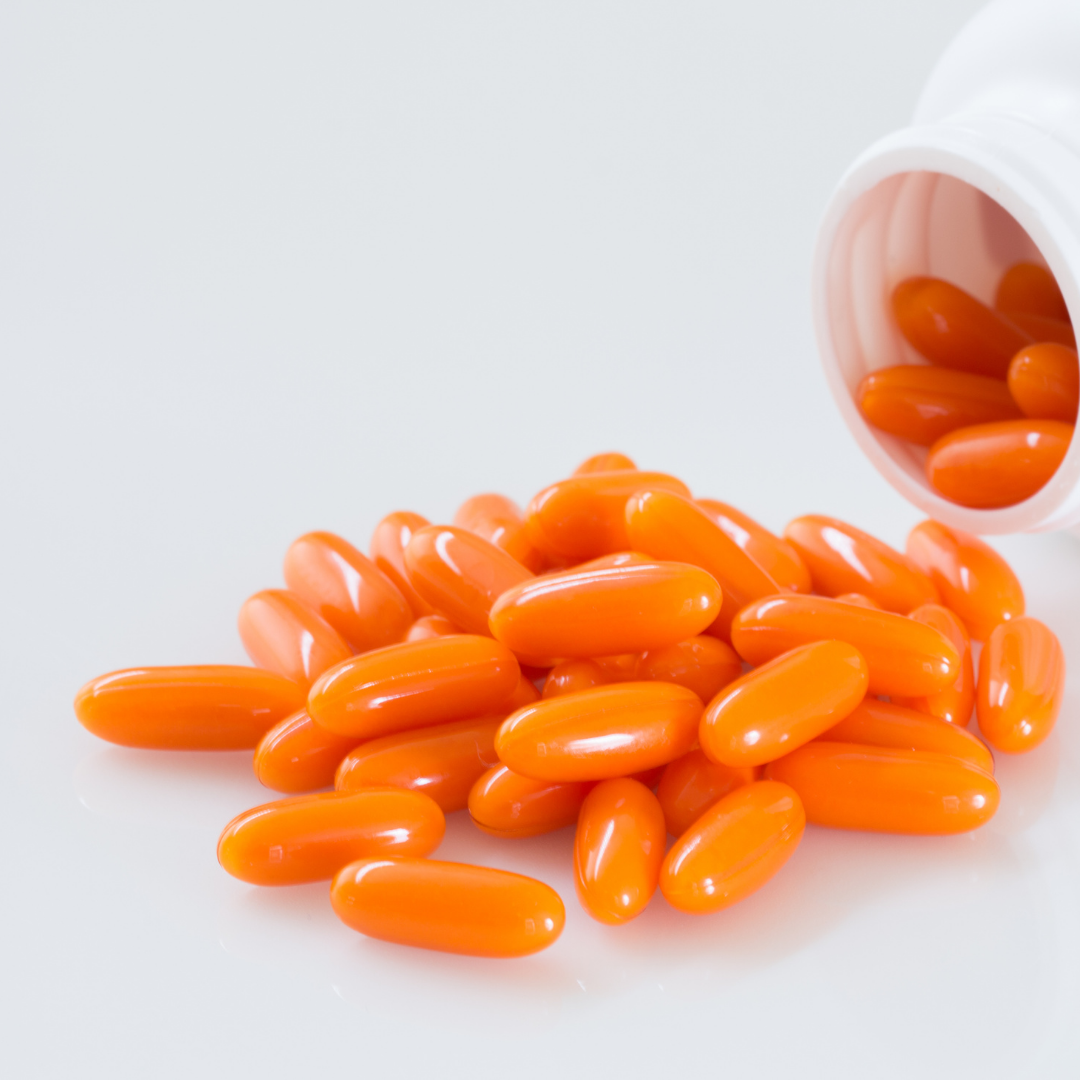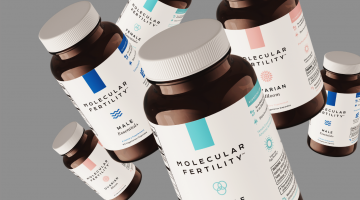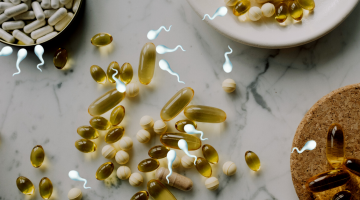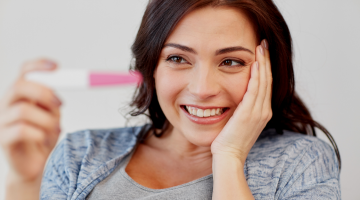Coenzyme Q10 (CoQ10) for Fertility: Benefits for Sperm and Eggs
We discuss various nutrients and dietary supplements in this article that may or may not be helpful. If you purchase recommended products, services, or treatments, it may benefit CNY Fertility financially. Read more about our financial relationships here. The supplements discussed in this article are not intended to treat, cure, or prevent any disease. If you are pregnant, take any medications, or have been diagnosed with a medical condition, consult with a healthcare provider before taking any dietary supplement.

Sperm and egg development are highly complex processes that require significant energy and are vulnerable to oxidative damage.
Coenzyme Q10 (CoQ10) is a naturally occurring biomolecule found in every cell of the body. It cycles between two forms, ubiquinone and its active form, called ubiquinol, where it plays a critical role in cellular energy production and acts as a powerful antioxidant.
As we age, CoQ10 levels decline, and the body’s ability to convert it into its active form also decreases.
Because of these functions, CoQ10 has become a widely used dietary supplement for general health and wellness. It has also been studied extensively for its potential role in supporting sperm quality, egg quality, and overall fertility in both men and women.
In this article, we’ll explain what CoQ10 is, explore how it may support reproductive health, review key studies, and highlight the best CoQ10 supplements for fertility.
Fast Facts About CoQ10 and Fertility
Sperm and egg cells require significant energy to develop and are highly vulnerable to oxidative damage.
Coenzyme Q10 (CoQ10) supports sperm and egg development by serving as a potent antioxidant and by playing a central role in the body’s energy-producing pathways.
Levels of CoQ10 decrease as you age. Taking CoQ10 supplements can increase blood and tissue CoQ10 levels.
- CoQ10 supplementation has been shown to improve egg quality, sperm quality, and pregnancy rates.
- Sperm and eggs both take about 90 days to develop. For best results, fertility specialists recommend taking CoQ10 and other fertility supplements for 90+ days when possible.
- CNY Fertility recommends Molecular Fertility, a line of fertility-specific supplements developed by our specialists to support various aspects of male and female fertility. Both Ovarian Bloom and Male Preconception+ provide significant doses of CoQ10 for optimizing sperm and egg health. Alternatively, CoQ10 can be taken as a stand-alone nutrient in its Ubiquinone and Ubiquinol forms.
How CoQ10 Works
Coenzyme Q10 helps support fertility and overall cellular health in two key ways:
Energy Production: CoQ10 is an essential component of the electron transport chain, the process by which cells generate energy. Higher CoQ10 levels allow this system to function more efficiently, giving cells—including sperm and egg cells—the energy they need to develop and function optimally.
Antioxidant Protection: CoQ10 also acts as a powerful antioxidant, reducing oxidative stress and protecting reproductive cells from free radical damage.
These combined effects are thought to be the primary mechanisms through which CoQ10 can improve sperm and egg quality.
CoQ10 for Egg Quality and Female Fertility
It is well known that fertility declines with age, and in women, the decline is especially rapid and pronounced.
When we talk about a woman’s fertility decreasing over time, we are specifically referring to two factors: the number of eggs remaining in the ovaries (ovarian reserve) and the quality of those eggs.
As previously mentioned, Coenzyme Q10 levels also decrease as we age. A 2015 study showed that suboptimal levels of CoQ10 can lead to oocyte deficits and age-associated declines in fertility.
The good news is that this same study showed that supplementing CoQ10 can help reverse the age-related decline in egg quantity and quality.
But CoQ10 hasn’t just been shown to help older women. CoQ10 has been found to improve egg and embryo quality, as well as pregnancy rates, in younger women.
Co-Q10 for Male Fertility and Sperm Quality
Studies have shown that higher blood levels of CoQ10 are linked to better semen parameters, including sperm count, motility, and morphology.
Researchers believe this connection exists because CoQ10 supplementation enhances the body’s total antioxidant capacity, helping protect sperm cells from oxidative stress. By reducing cellular damage, CoQ10 may support healthier, more functional sperm.
A 2015 study of 60 men found that CoQ10 supplementation significantly improved key measures of male fertility. Sperm count increased by 53%, while total motility improved by 26%.
Other studies have reported similar results, consistently showing improvements in sperm concentration, motility (including progressive motility), and morphology.
Coq10 Dosage for Fertility
Most people naturally consume about 3–6 mg of Coenzyme Q10 each day through their diet, primarily from meat products.
For fertility support, specialists typically recommend a much higher dose. Anywhere from 100 mg to 600 mg daily is considered optimal.
As with any supplement, it’s essential to consult your doctor before starting CoQ10, particularly if you are taking medications, have existing health conditions, or are already pregnant.
CoQ10 vs. Ubiquinol for Fertility
CoQ10 exists in two forms: the oxidized form, ubiquinone, and the reduced, active form, ubiquinol.
Converting ubiquinone into ubiquinol is a complex process that requires multiple enzymes.
In youth, this conversion happens efficiently, but with age, the process becomes less effective, making it harder for the body to maintain adequate active CoQ10 levels.
While ubiquinol may offer an advantage due to easier absorption with age, both forms of CoQ10 have been shown to support fertility.
The Best CoQ10 Brand for Fertility
When choosing fertility supplements, you generally want to look for products that contain the most absorbable and bioavailable forms of each nutrient, as well as products that combine multiple key nutrients.
At CNY Fertility, we developed our own line of supplements called Molecular Fertility, to meet these criteria,
Stand-alone CoQ10 Supplement for Men and Women
If you’re looking for a stand-alone CoQ10 supplement for fertility, consider Molecular Fertility’s CoQ10 Ubiquinone or Ubiquinol. Both utilize a technologically advanced VESIsorb® delivery system, which has been shown to increase CoQ10 absorbability and bioavailability significantly.
A randomized control trial found that the VESIsorb® system delivered a 622% increase in relative bioavailability compared to oil-based CoQ10, and 499% higher compared to a solubilized formulation.

Fertility Supplement with CoQ10 for Women
If you’re considering a female fertility supplement that combines CoQ10 with other nutrients to support egg health, Ovarian Bloom is one option. It contains 100 mg of VESIsorb® CoQ10, along with additional ingredients designed to work synergistically to promote egg quality.
CoQ10 Supplement for Men

Molecular Fertility’s Male Preconception+ is formulated with a comprehensive blend of nutrients, including CoQ10, to support sperm health, specifically count, motility, morphology, and DNA integrity.
Coenzyme Q10 (CoQ10) for Fertility: The Takeaway
Coenzyme Q10 plays a critical role in cellular energy production and antioxidant defense, two functions essential for healthy sperm and egg development.
Research shows that supplementation can improve egg quality, embryo development, sperm parameters, and even pregnancy outcomes.
While natural dietary intake of CoQ10 is low, fertility specialists often recommend higher doses in supplement form, especially for individuals facing age-related declines in fertility.





